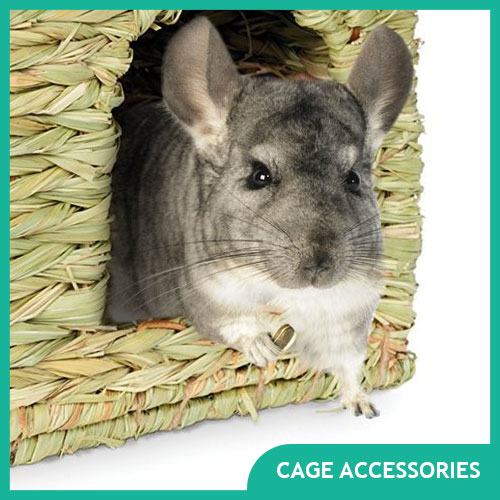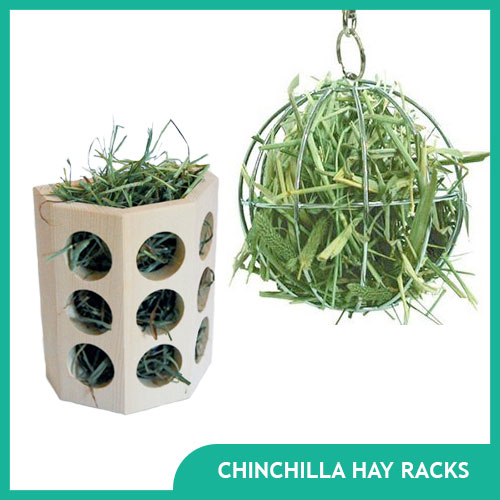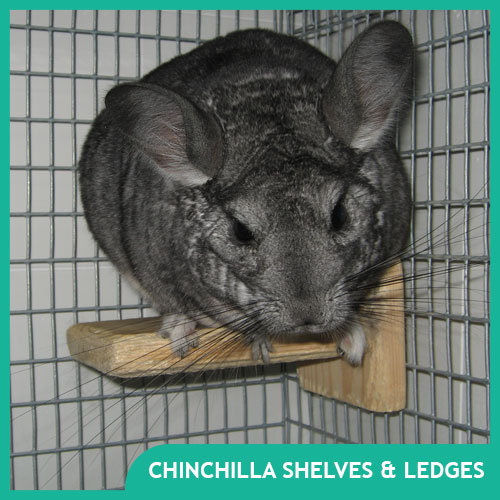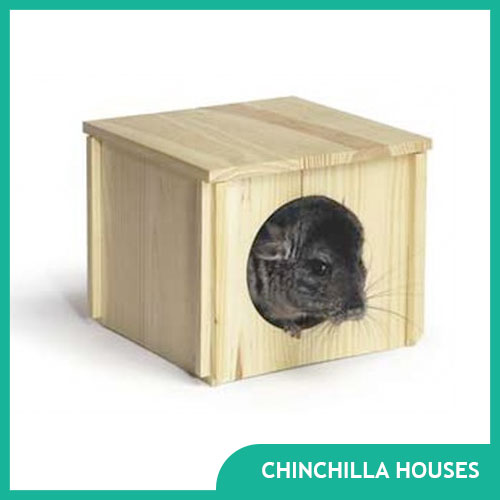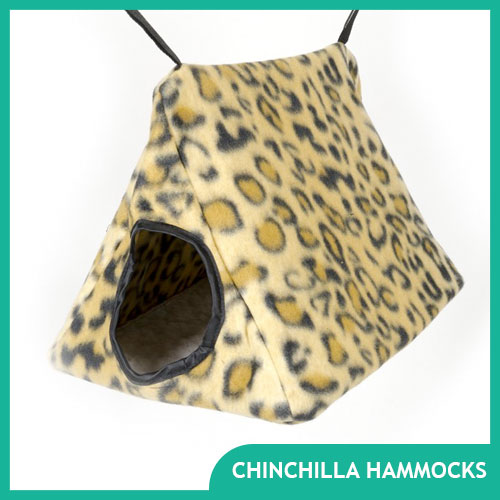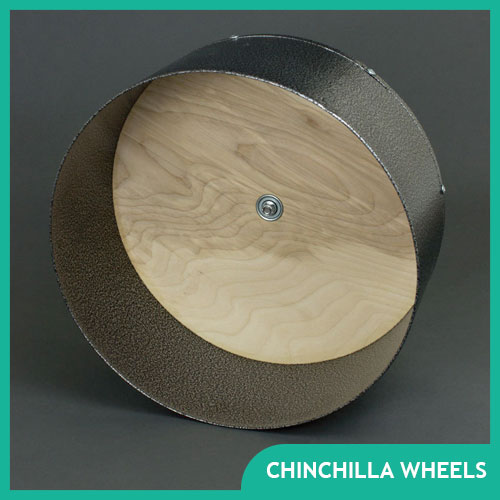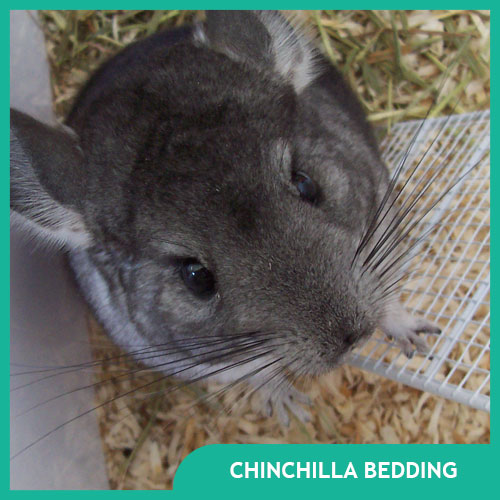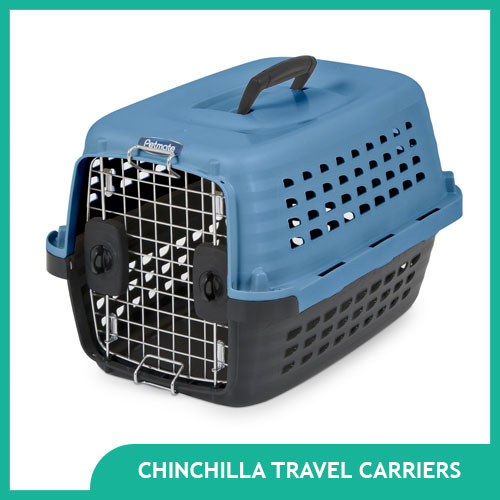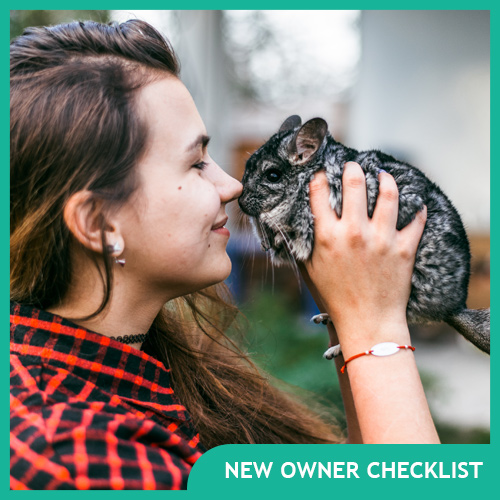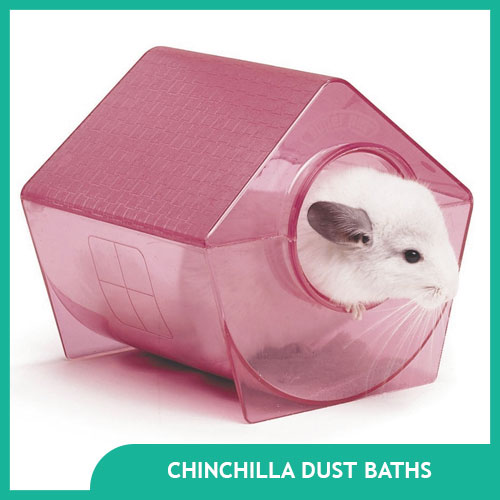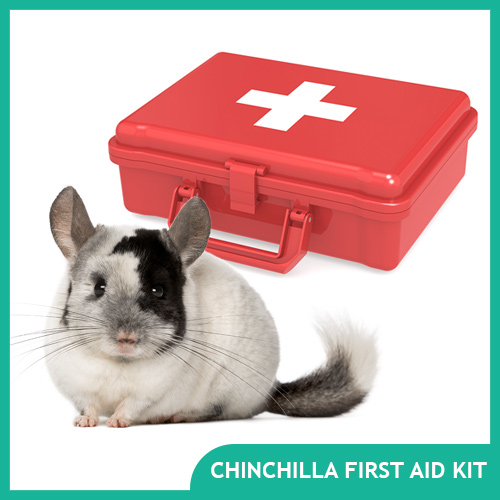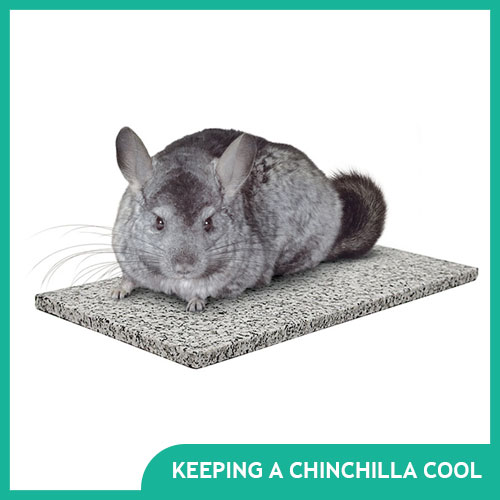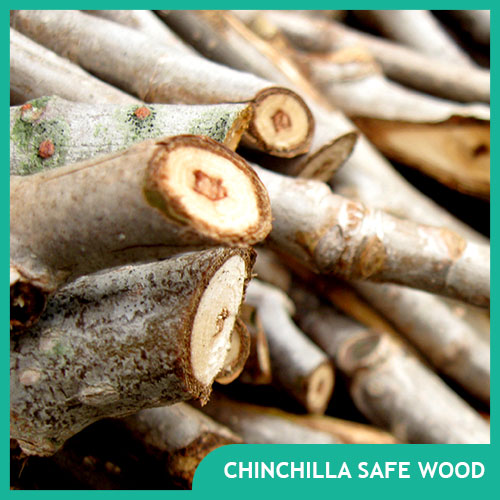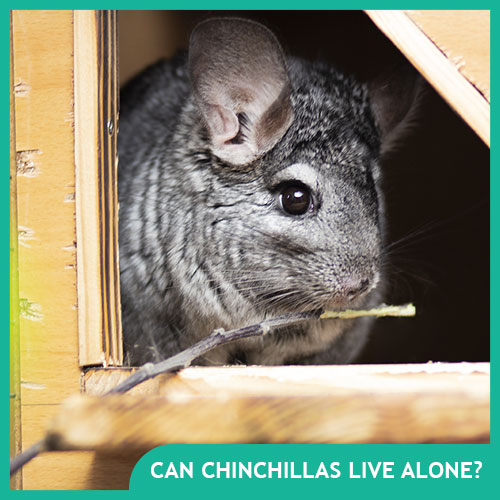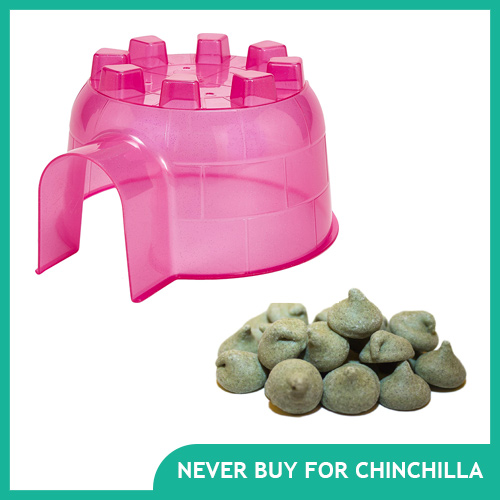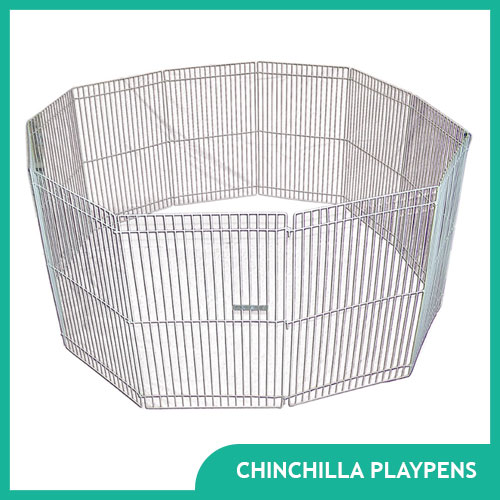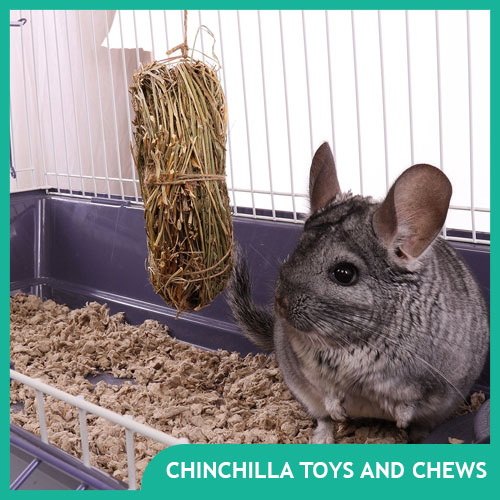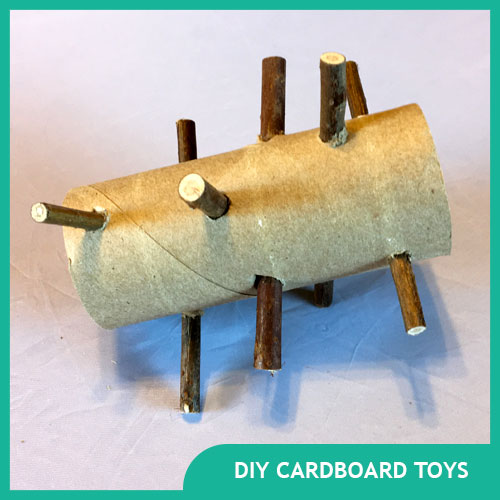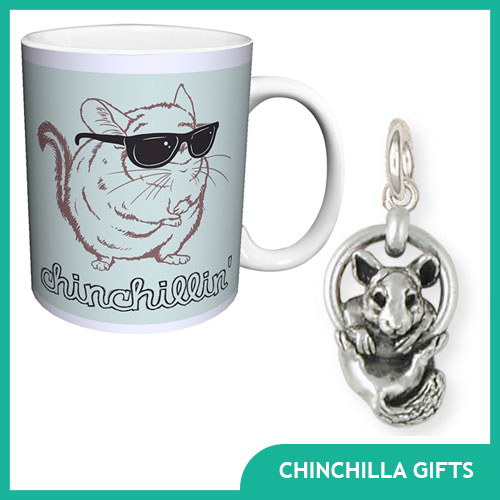Chinchilla Supplies and Information
Chinchillas are adorable exotic pets that make great companions for advanced pet owners (mostly adults). They do have a high upfront cost to purchase a chinchilla and all the necessary supplies and require special care that should be taken into consideration when deciding to add a chinchilla to your family. Most people know of chinchillas because of coats made from their soft, velvety fur and are surprised to learn that people keep them as pets.
You can learn more about taking care of chinchillas and the supplies they need from our helpful articles.
Chinchilla Housing and Cages
Chinchilla Care
Chinchilla Fun and Play
Chinchilla FAQs (Frequently Asked Questions)
What are chinchillas?
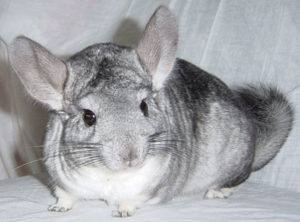 Chinchillas are a type of rodent native to the Andes mountains in South America. They naturally live in herds at high elevations. They are critically endangered in the wild (because of hunting by humans), but chinchillas used for fur or for pets are a domesticated variety raised by breeders.
Chinchillas are a type of rodent native to the Andes mountains in South America. They naturally live in herds at high elevations. They are critically endangered in the wild (because of hunting by humans), but chinchillas used for fur or for pets are a domesticated variety raised by breeders.
(Read more about chinchillas on Wikipedia.)
How big is a chinchilla?
They are the size of a small rabbit (female chinchillas are larger than males). Their body length is about 10 to 14″ and their tails are about 5 inches long.
What color is a chinchilla?
Chinchillas come in a variety of colors. Gray is the most common color seen in pet stores, but there are brown, beige, white, and other beautiful colors and shades available from many breeders.
Are chinchillas good pets?
Chinchillas make great pets for advanced pet owners. They are active, love to jump and explore. If you’ve never seen a chinchilla before, they’re like fuzzy squirrels. Once you form a bond with a pet chinchilla, you’ll find it’s a very rewarding relationship.
While they make a good pet for older and advanced owners, chinchillas are not recommended for everyone. They are not good pets for children as they require special care, are easily stressed, and will bite if frightened or threatened.
Chinchillas also love to chew, so you need to be willing to provide them with a chinchilla-proof exercise area (no electrical cords, no unsafe wood, etc.). They are also extremely temperature sensitive and need to be housed in a room below 74 degrees Fahrenheit–which means you need air conditioning if you live in an area with warm summers. Read more about keeping chinchillas cool.
If you can accommodate a chinchilla’s needs, they make a great pet.
Can chinchillas go outside or live outside?
The general answer is no. While many exotic pets enjoy being walked on a leash or can even live outside in mild climates, chinchillas do not like this. Chinchillas, in general, are somewhat fragile pets. They are easily stressed by change and dislike loud noises. Being outside where they may encounter unknown animals or people would just stress the chinchilla, which can lead to health issues or make them stop eating.
Chinchillas are also extremely temperature sensitive. Their thick coats make it easy for them to overheat and they should be in a temperature controlled environment at all times. Chinchillas should not be taken outside unless it’s absolutely necessary (like for a vet appointment or to take them on vacation). Read more about traveling with chinchillas.
How long do chinchillas live?
Chinchilla lifespans are usually 10-20 years as pets in captivity. In the wild, they live around 8-10 years. Because of their long lifespan, pet owners should take that into consideration when they decide to get a chinchilla as a pet.
What do chinchillas eat?
In the wild, chinchillas eat foods found in their environment, like plants, seeds, barks, and grasses. Generally, they eat a high fiber diet that is very bland.
For pet chinchillas, they eat a very specific diet similar to that of their wild cousins. The base is hay (like timothy hay) and a chinchilla formulated pellet. They also require fresh water and can be given occasional treats.
Learn more about chinchilla food and diet recommendations and healthy chinchilla treats.
Should a chinchilla be spayed or neutered (fixed)?
Generally, chinchillas should not be spayed or neutered, as it is dangerous to sedate a chinchilla to perform the procedure. They can be kept as solitary animals or kept in same sex pairs, which will prevent any chance of unwanted pregnancy. Usually, it is best for chinchillas to be in pairs from a young age, often with a same-sex sibling.
Why does my chinchilla chew on everything?
Since chinchillas are a type of rodent, their teeth are constantly growing. Because of this, they have a constant urge to chew. Chewing is a natural part of their behavior and a necessity to continually wear down their teeth to a reasonable length.
Because chinchillas need to chew and aren’t always smart enough to chew appropriate items (like their toys instead of your furniture!) you need to provide them with safe wood and toys to chew on. Also, make sure they have access to plenty of fresh hay which helps them wear down their molars when they eat it.
Why does my chinchilla sleep so much?
If you’ve just added a pet chinchilla to your family, you may have noticed that they spend a lot of the day sleeping. Chinchillas are naturally nocturnal, which means they sleep during the day and are active at night. Because of this, you may notice your pet sleeping most of the day and being uninterested in playing. As long as your chinchilla is eating and pooping normally, this is probably just normal chin behavior.
One of the nice things about chinchillas is they like routine and they can easily adjust to the schedule of their owners. Try to feed them, clean their cage, and offer playtime at the same times each day. Your chinchilla should quickly adjust their schedule to match. If that doesn’t work, try feeding and playing in the early morning or evening when they’re more likely to be awake.


